Best Home Remedies For Whiteheads
By Dr Smita Barode +2 more

Get,

to manage your symptom
Get your,


4 Cr+ families
benefitted

OTP sent to 9988776655



You’ve successfully subscribed to receive
doctor-approved tips on
Whatsapp

Get ready to feel your best.

Hi There,



Register to Avail the Offer
Send OTPBy continuing, you agree with our Privacy Policy and Terms and Conditions

Hi There,

Trusted by 4 crore+ families

OTP sent to 9988776655



You have unlocked 25% off on medicines




Code: NU25

By Dr Smita Barode +2 more
Table of Contents
Whiteheads are tiny, whitish or yellowish, generally painless bumpy lesions which appear on the skin. They are also called closed comedones (singular-comedo). They are a type of acne that commonly occur over the nose, chin, forehead, neck, chest, back and the upper part of the cheeks and arms.
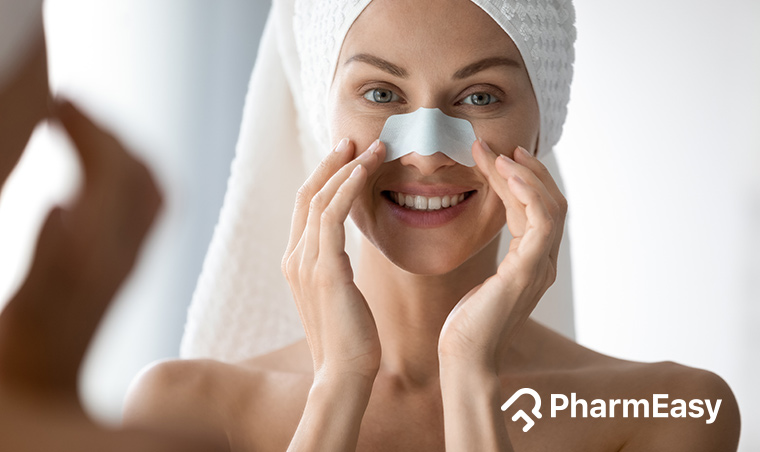
Whiteheads are commonly seen in adolescents, but they can also affect adults. A persistent long-standing whitehead is called milia. It appears as a small white bump due to the normally shed skin cells getting confined in small sacs on the skin surface.1,2
Did you know?
Our skin contains hair follicles all over. Around these hair follicles, there are small glands called sebaceous or oil glands. These sebaceous glands secrete sebum, a substance which is oily in nature. Normally, this sebum is drained out to the skin surface through the hair follicle. However, always consult a doctor and do not self-medicate.
Did you know that you can use coconut oil to get rid of whiteheads in addition to using it for your hair and cooking? Yes, investigations have proven that coconut oil has antibacterial characteristics and may inhibit the growth of Propionibacterium acne. This is the bacteria causing whiteheads. As a result, if you have whiteheads, you may apply coconut oil at home.
Dr. Rajeev Singh, BAMS
Whiteheads are milder versions of acne. They usually appear in areas of the skin which have oily glands in abundance, like the face, upper back and upper chest.1 Whiteheads appear as small yellowish or whitish protuberances on the skin.2 They do not cause any redness, pain, swelling or a sensation of heat as they are non-inflammatory by nature. They also don’t contain pus.1
Getting rid of whiteheads need not be an expensive affair! Read along to know several natural remedies that will help you tackle whiteheads at home.
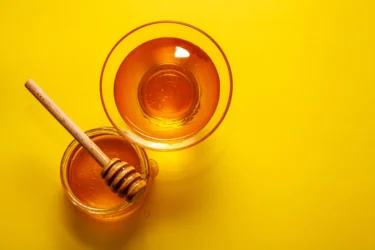
Honey is known to be anti-bacterial. It helps to inhibit the growth of Propionibacterium acnes, which is a causative factor for whiteheads, a type of acne.1,3 To use honey, take the required quantity of honey in a glass bowl. Add a little water to it so that its consistency is comfortable enough for you to apply to the skin. Apply this to the affected area and keep it on for 15-20 minutes. You can wash it off with lukewarm water.

Aloe vera contains substances that act as an astringent and tighten the skin pores. It also has an anti-bacterial effect that helps fight whiteheads, a type of acne.1,4 Take an Aloe vera leaf and cut off the flat end of the leaf first. Then slit it open vertically to reveal the aloe gel inside. You can scoop out this gel and apply it directly to the skin. Wash off after 15-20 minutes.
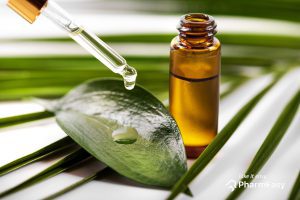
Tea tree oil has anti-microbial properties. It is known to reduce whiteheads on the skin.5 You can take tea tree oil in a bowl and add any carrier oil like coconut, jojoba or olive oil to it and mix thoroughly. With a clean cotton swab, dab this mixture onto the affected part and keep it on for 15-20 minutes. Wash off with lukewarm water and pat dry.
Also Read: Home Remedies For Facial Hair
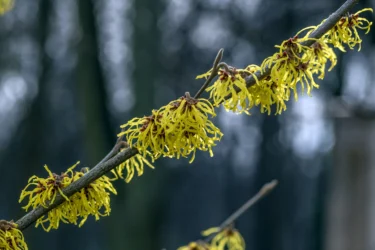
Witch hazel contains tannins which give it an astringent quality (helps the skin cells to contract). It also inhibits the growth of micro-organisms (antiseptic), especially bacteria and also helps to reduce inflammation due to whiteheads (acne).6 Take the required quantity of witch hazel solution in a bowl. Dip a clean cotton ball in it and apply to the affected areas. Do not rinse.
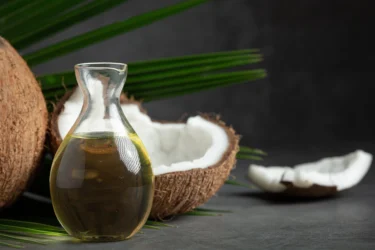
Coconut oil has anti-bacterial action against the bacteria causing whiteheads.7 Before using it, ensure that the skin is cleansed and dried properly. Take the required quantity of coconut oil on your clean hand and massage it thoroughly on the affected skin area. You may leave the oil overnight and then wash it with tepid water on waking up.
Also Read: Natural Home Remedies for Oily Skin
Whiteheads are a kind of acne that is caused by the bacteria Propionibacterium acnes. Honey is known to have antibacterial characteristics and studies have demonstrated that it may assist in inhibiting the growth of these bacteria and reducing whiteheads. For these reasons, you may use honey for getting rid of whiteheads at home.
Dr. Siddharth Gupta, MD
It is difficult to prevent whiteheads completely, but some things do help:
Also Read: What is a Sebaceous Cyst: Causes, Symptoms, and Treatment Options
Most whiteheads go away on their own in about seven days, but you can seek medical help as soon as you notice the appearance of whiteheads. Do inform your doctor of past allergies to medication, if any.
Whiteheads during adolescence, though not life-threatening, can have a psychological impact on the person. It can affect the self-image too. At such times, it is essential to seek help from a healthcare provider, especially if one is experiencing symptoms of depression or anxiety due to the whiteheads.2
Also Read: Removing and Preventing Blackheads on Nose: A Complete Guide
Whiteheads are small yellowish or whitish eruptions occurring on the skin, especially in areas where there are a lot of oil glands when the sebum produced by oil glands gets trapped inside a hair follicle. The trapped sebum cause inflammation of the gland or hair follicle due to infection of the sebaceous gland by bacteria, extra sebum production or abnormal development of keratin. While whiteheads can be hereditary, they are also caused by conditions which make the sebaceous glands hyperactive and by toxic chemicals.
Having whiteheads on the skin is a fairly common condition, especially in the adolescent age group. Though not dangerous, they may have an emotional impact on the individual having them, and one must seek medical help if one is feeling depressed or anxious due to whiteheads.
Honey, aloe vera, tea tree oil, witch hazel and coconut oil are some natural solutions for whiteheads. With these home remedies, you can tackle whiteheads on your face, neck or back in a natural way, at the comfort of your home.
Also Read: Effective Home Remedies For Blackheads
Blackheads are called open comedones as the affected skin surface remains open. On the other hand, whiteheads are called closed comedones because the affected skin surface remains closed. Moreover, blackheads appear brown or black in colour, while whiteheads appear whitish or yellow.1,2
No, whiteheads are not contagious at all. They cannot be transmitted from one person to another.2
Squeezing whiteheads is not recommended, as trying to extract them can cause infection or inflammation of that part of the skin. Trying to extract them by squeezing can also cause scarring.2
While the above-mentioned home remedies have shown beneficial effects for tackling whiteheads, there is not enough scientific evidence to state that their effect is permanent.
Disclaimer: The information provided here is for educational/awareness purposes only and is not intended to be a substitute for medical treatment by a healthcare professional and should not be relied upon to diagnose or treat any medical condition. The reader should consult a registered medical practitioner to determine the appropriateness of the information and before consuming any medication. PharmEasy does not provide any guarantee or warranty (express or implied) regarding the accuracy, adequacy, completeness, legality, reliability or usefulness of the information; and disclaims any liability arising thereof.
Links and product recommendations in the information provided here are advertisements of third-party products available on the website. PharmEasy does not make any representation on the accuracy or suitability of such products/services. Advertisements do not influence the editorial decisions or content. The information in this blog is subject to change without notice. The authors and administrators reserve the right to modify, add, or remove content without notification. It is your responsibility to review this disclaimer regularly for any changes.

Leave your comment...
Comments